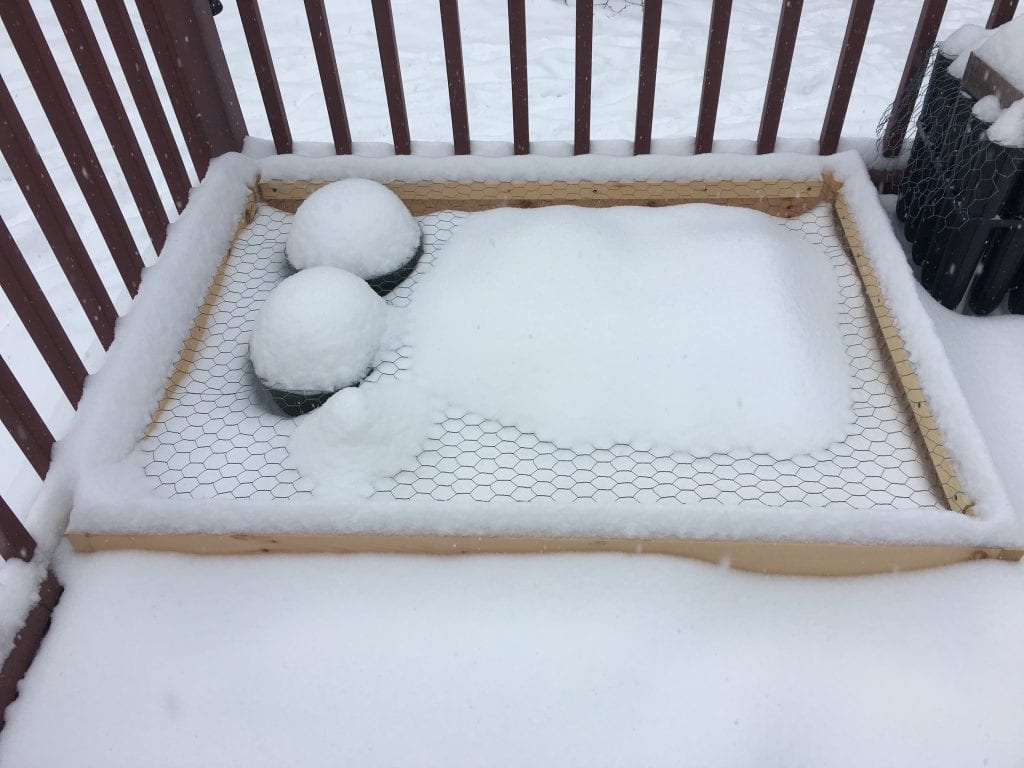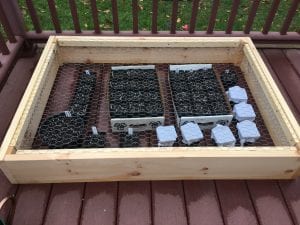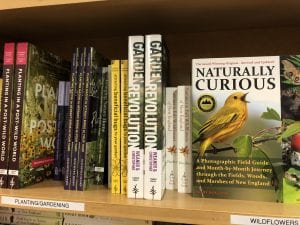
Happy New Year! While we might not be seeing blooms, bees, and butterflies in our gardens, parks, or conserved landscapes, January is still as good a time as any to work on restoring ecological function around us. Many of you are maintaining and watching bird feeders right now, but we urge you to do even more.
All of the birds that you see on feeders in Maine in January will be either migrating north to their breeding grounds or looking for mates and nesting habitat around here starting in April or so. The key triggers for both groups are longer days, warmer temps, and the insects that should ensue.
But if your neighborhood is like most these days, you’ll get longer, warmer days, but far fewer insects. That’s because the most abundant plants around you–lawn grasses, exotic trees and shrubs, and plants that have been genetically modified and/or cloned–don’t serve as beneficial host plants. This means that butterflies and moths won’t lay eggs on them, which in turn means that your neighborhood won’t produce the caterpillars that chickadees, nuthatches, woodpeckers, cardinals, sparrows, finches, etc. need to feed their nestlings come May and June.
So, even if you are seeing and helping birds this winter, you aren’t doing anything to conserve or continue those species via reproduction. Providing food for baby birds is just as important as keeping cats indoors, eliminating toxins, preventing window strikes, and lowering your carbon footprint, and way more important than black oil sunflower seeds and suet.
While it isn’t time to pull out the gardening tools just yet, there is still plenty to do to be better habitat stewards at home, even in January. Here are some things you can do right now::
Sow some native plant seeds: Growing your own native host plants from seed is the cheapest, most fulfilling way to catch the native plant restoration bug. The seeds of most species require a month or two of below-freezing temperatures, so get them sown and outside ASAP. Our partners at Wild Seed Project have made this very easy and accessible. Start with versatile, beautiful, and productive species like Swamp Milkweed, which will grow almost anywhere, won’t spread like its Common Milkweed cousin, and should reward you with Monarch caterpillars each August or September.

Get brushed up on ecology and phenology: For most of us, earth science is as distant a memory as cursive and multiplication tables. We could all probably stand to review the life cycles of birds, insects, and plants, and familiarize ourselves with what species of each should be sharing our landscapes. Just as important as who is supposed to be there and what is supposed to be happening is when. There is no better resource for this than Naturally Curious: A Photographic Field Guide and Month-by-Month Journey through the Fields, Woods, and Marshes of New England by Mary Holland, which was just updated last year and is available along with many other field guides and natural history titles at Maine Audubon’s nature stores.

Surf the Web: There are too many fantastic resources out there to list, so we’ll start with our favorites. Our top pick is the Native Plant Finder tool, which houses the research of “Bringing Nature Home” author Doug Tallamy. There you can peruse the host plants for your zip code, and how many and which caterpillars each genus has hosted historically (the bigger the number, the more likely they are to feed baby birds). As you identify birds at your feeders this winter, learn more about them at Cornell’s All About Birds. There, you can visit the “Life History” tab for each species you see to find out what you can do to be a better year-round habitat steward. Lastly, start identifying and recording what you’re seeing on iNaturalist (whose updated app and ID tool is stellar!), eBird, and/or Signs of the Seasons.
This ought to keep you busy and fulfilled until we are commuting in the daylight again! Check back here often for more updates and tips.
